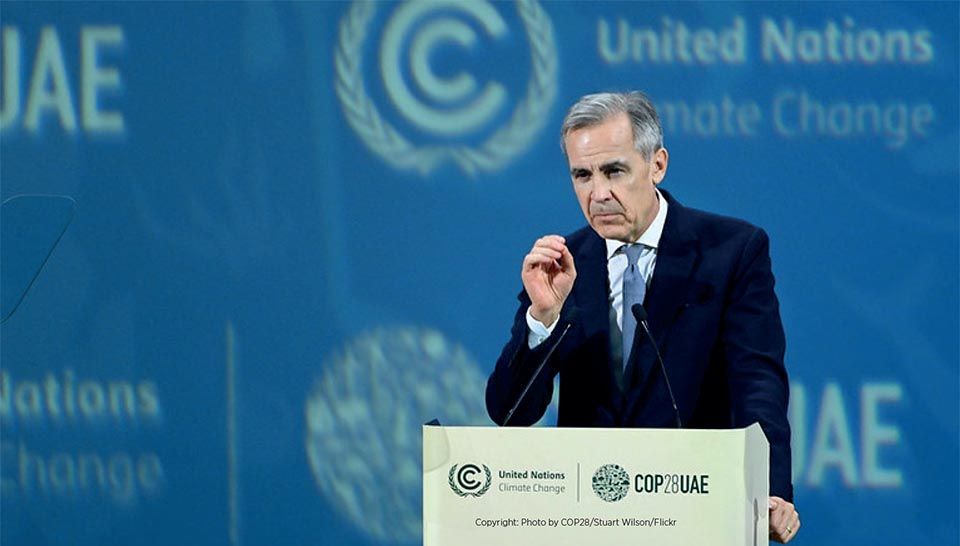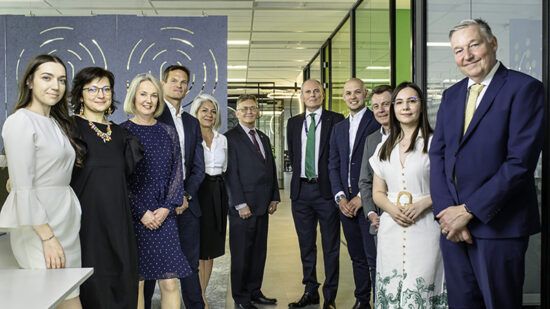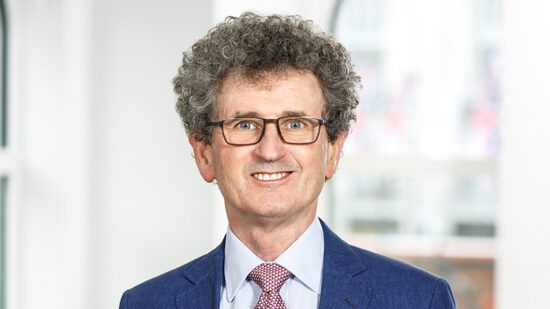COP28 officially inaugurated the Global Climate Finance Centre (GCFC) today (4 December), with the aim of addressing key barriers linked to financial frameworks that hinder investment flows to help make climate finance, “available, affordable and accessible”.
Based in Abu Dhabi, the centre’s nine founding members – ADGM, ADQ, BlackRock, CIFF, GFANZ, HSBC, Masdar, Ninety One and the World Bank Group – have also confirmed their membership of the independent think-tank.
The three core functions of the GCFC are to drive research and share best practices, offer advisory and stakeholder engagement, and establish a Climate Finance Academy to build expertise on green finance markets. Together, these initiatives are expected to build capacity in UAE and global financial institutions, while scaling up green finance market activity and catalysing international investment into low and zero-carbon initiatives.
Commenting on the creation of the GCFC, COP28 president, Dr. Sultan Al Jaber, said: “This scale of the climate crisis demands urgent and game-changing solutions from every industry. Finance plays a critical role in turning our ambitions into action and is essential to eliminating emissions and keeping 1.5°C within reach.
“COP28 must be an inflection point as we unite the world on how we bridge the gaps to 2030 identified in the global stocktake. To do this, we need an all-of-the-above approach that includes everyone because everyone is needed. This is why I greatly welcome this new Global Climate Finance Centre, which will catalyse the transformation of UAE and global financial markets and institutions towards a greener and more sustainable future.”
“Innovation is needed to accelerate the flow of climate finance and build a bridge to a more prosperous future,” said Mark Carney (pictured), UN special envoy for climate action and finance and co-chair, Glasgow Financial Alliance for Net Zero (GFANZ).
“GFANZ is looking forward to supporting the Global Climate Finance Centre, to close the gaps in data, action, and investment we must address to achieve the goals of the Paris Agreement. We applaud the UAE’s leadership in tackling the most pressing and difficult challenges and look forward to working together on our shared mission to scale transition finance and mobilise capital to the global south.”
The launch of GCFC coincides the launch of ALTÉRRA, a $30bn catalytic climate vehicle intended to drive forward international efforts to create a fairer climate finance system with an emphasis on improving access to funding for the global south. By supporting the creation of climate financial markets, the GCFC should help enable ALTÉRRA to build a climate finance ecosystem in Abu Dhabi and unlock funds into climate investments around the world at a transformational scale.
Reaction
Shami Nissan, partner and head of sustainability at Actis, commented: “Climate finance was always set to take centre stage at this year’s COP and has been a key focus of the organisers, as they have rightly identified that stimulating financial flows into the climate transition is essential if we are to accelerate the climate transition and meet Paris targets. This latest COP28 announcement from the UAE for a new Global Climate Finance Centre is welcome news.
“A key aim of this new initiative is also to establish Abu Dhabi as a leading centre for climate finance and this makes much sense given the need for the UAE to adapt and diversify its economy to the realities of an increasingly decarbonised economic system. A successful energy transition will require countries like the UAE to grasp the opportunities presented by the climate transition.
“The centre has the benefit of a number of high-profile founding members across the spectrum of finance, and this should bolster its ability to succeed in making more climate-focused capital available in a more affordable and accessible way. The objective of this initiative is completely aligned with our mission at Actis – targeting consistent, superior returns through our investments in sustainable infrastructure. From our perspective, the climate transition represents the investment opportunity of a lifetime.”
Andrew Griffiths, director of policy and partnerships at Planet Mark, added: “The GCFC can achieve greater coordination in which solutions should be attracting more funding from national bodies based upon their potential for impact. For example, ensuring that proven technologies like renewable energy are being scaled to their full potential, and technologies that are not yet working at scale like carbon capture and storage receive support for innovation but are not treated as a silver bullet solution to enable indefinitely continued use if fossil fuels.”








